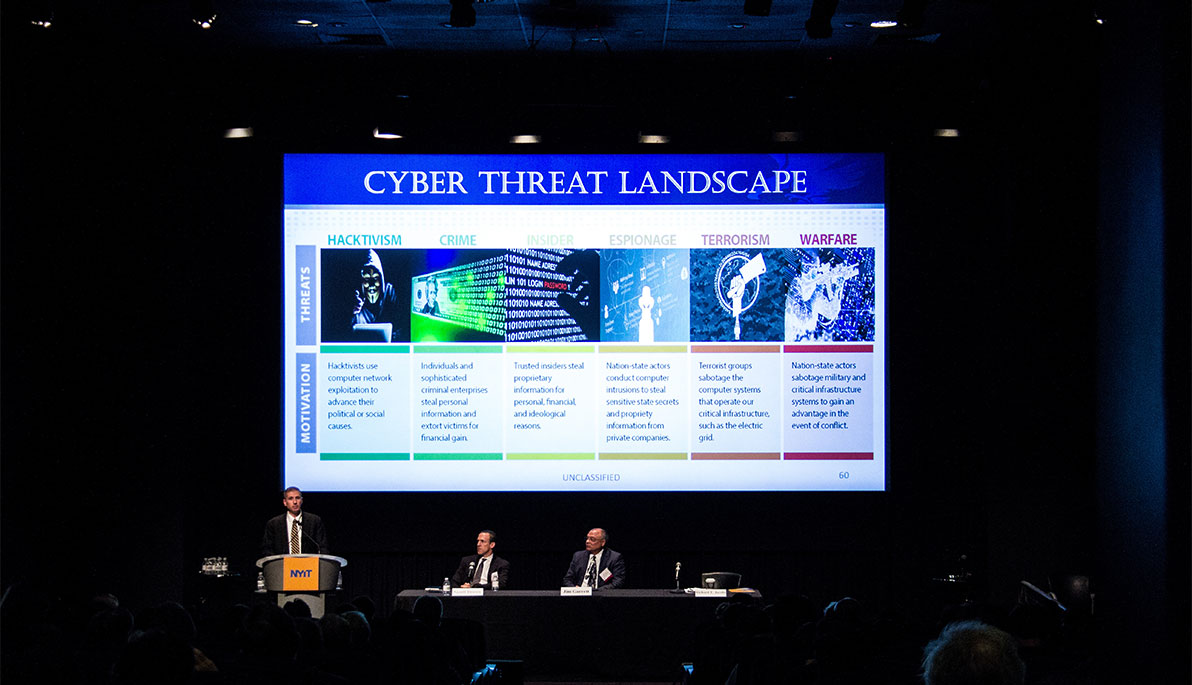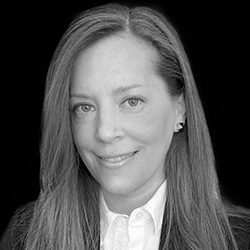News
Planes, Trains, and Election Results
September 30, 2016
Don’t worry. Your vote in the upcoming election should be safe.
At least that’s what one expert said at NYIT’s annual cybersecurity conference on September 22. According to keynote speaker Mark G. Graff, founder and CEO of Tellagraff and former chief information security officer for NASDAQ, while there will still be outside intruders trying to sow chaos and confusion leading up to and during the November 8 elections (for example, false news being planted by Russian intelligence operatives and denial of service attacks that may impact some voting districts on Election Day), no foreign nation state will likely impact the 2016 U.S. presidential election to any significant degree.
“None of the battleground states have really dangerous [voting] practices,” Graff said, adding that we can expect a “good outcome” when it comes to ensuring authentic, accurate voting.
Election tampering through cyber intrusion was just one of the many timely topics discussed at the conference, now in its seventh year. Held at NYIT Auditorium on Broadway, it featured experts from academia, business, and government who discussed the latest developments in cybersecurity, including everything from botnet computer networks infected with malicious software, digital extortion schemes, and ensuring the resiliency of transportation systems, to the U.S. government’s ability to successfully prosecute cyber criminals, to career opportunities in the industry.
Nada Marie Anid, Ph.D., dean of NYIT School of Engineering and Computing Sciences—which convened the event—welcomed the audience with opening remarks. “The participation of cyber experts from industry and government in our conferences provides an exceptional opportunity for NYIT faculty and students to work hand in hand with government and industry on finding solutions to the growing threat of cybersecurity,” she said.
Anid was followed by NYIT President Edward Guiliano, Ph.D., who called upon governments, legislators, companies, and universities to commit more funding, resources, and technology to fight growing digital threats. “Cyber attacks get bolder and craftier,” he said. “More and more, hackers have the keys to every room in the world.”
Ease of accessibility for cyber criminals is one reason the field has a “negative employment rate,” noted Geoff Brown, citywide chief information security officer for NYC Department of Information Technology and Telecommunications, at a panel discussion on government agencies at the forefront of cyber protection (see image). “Organizations always have openings,” he said. “We can’t find the talent to do this job fast enough.”
Afternoon remarks focused primarily on the vulnerability and resiliency of U.S. transportation systems. Edward Fok, transportation technologies specialist at the U.S. Department of Transportation’s Federal Highway Administration, said the flow of data and communications among transportation control systems is highly predictable, given the high frequency of mass transit, airline travel, and other modes of transport, which provides an edge against cyber intruders.
Other panel discussions, workshops, and sessions included:
- How Industry is Addressing Evolving Security Threats: Block Chain, Internet of Things and Cyber-Physical Systems
- Cybersecurity for Smart and Safe Transportation
- Vehicular Security and Privacy
- Accelerating Cyber Education and Careers
For more information, visit nyit.edu/cybersecurity.
Photo: Richard T. Jacobs (at podium), Assistant Special Agent In-Charge, Cyber Branch, FBI’s New York Office; Geoff Brown, Citywide Chief Information Security Officer, NYC Department of Information Technology and Telecommunications; and Jim Garrett, GCFA, CISSP, M.B.A., Chief Information Security Officer, New York State Enterprise Information Security Office, NYS Office of Information Technology Services, present the session Government Agencies at the Forefront of Cyber Protection.






